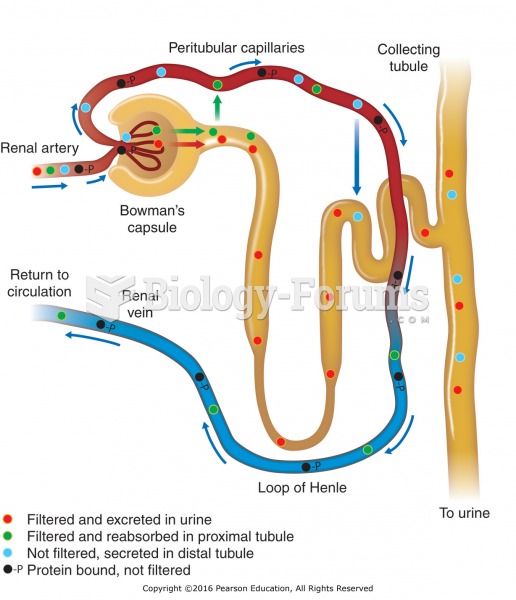|
|
|
By definition, when a medication is administered intravenously, its bioavailability is 100%.
Although puberty usually occurs in the early teenage years, the world's youngest parents were two Chinese children who had their first baby when they were 8 and 9 years of age.
The top 10 most important tips that will help you grow old gracefully include (1) quit smoking, (2) keep your weight down, (3) take supplements, (4) skip a meal each day or fast 1 day per week, (5) get a pet, (6) get medical help for chronic pain, (7) walk regularly, (8) reduce arguments, (9) put live plants in your living space, and (10) do some weight training.
On average, someone in the United States has a stroke about every 40 seconds. This is about 795,000 people per year.
The people with the highest levels of LDL are Mexican American males and non-Hispanic black females.







